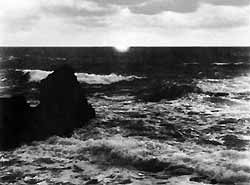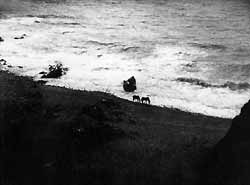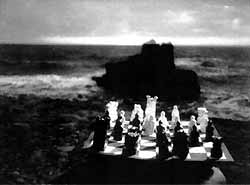
Главная
Сфера ECM
Люди
Альбомы
Ответы мэтров
Архив
Поиск
Форум
Гостевая книга
Ссылки
Благодарности
Отзывы
Авторов!
Написать
ДЖАЗ.РУ
Jan Garbarek / The Hilliard Ensemble “Mnemosyne”
|
ECM New Series 1700/01 2-CD 465 122-2 David James countertenor Jan Garbarek saxophones
[1:45:02] Friedrich Hölderlin (1770-1843) Erste Strophe der zweiten Fassung aus: Stuttgarter Hölderlin-Ausgabe Bd. 2, I First strophe of the second version from: Friedrich Hölderlin, Hymns and Fragments Prima strofa della seconda versione da: Friedrich Hölderlin, Le liriche Première strophe de la deuxième version de: Friedrich Hölderlin, Œuvres John Potter's text translated by Franco Masotti, Martine Passelaigue, Brigitte Jakobeit The Seventh Seal
Recorded April 1998 An ECM Production
ECM Records Mnemosyne Our collaboration was five years old when we returned to the monastery of St Gerold. We wanted to do two things: record versions of some of the new music that we had added to our repertoire since Officium, and renew our encounter with the unknown, experimenting with music we hadn’t come across before. Officium was based broadly on early music principles; we have now performed together hundreds of times and the repertoire, and what we do with it, has evolved a long way from those first explorations. So Mnemosyne really contains two sorts of music. The most straightforward are those pieces where we sing existing music (conventionally notated) and the saxophone improvises around us. We may reorder the music a bit but we know more or less what we’re going to do (we never know what the saxophone is going to do…). This was how much of Officium worked. A lot of the newer repertoire on Mnemosyne consists of very small amounts of material with minimal notation. These are rarely complete pieces and often just a few scraps, recovered from old book bindings or buried for centuries under desert sands. We may decide on an outline form and share out the material, then we all improvise and none of us knows what will happen next. It was another magical experience for us, five musicians plus the mercurial creative impulse of Manfred Eicher, and the timeless hospitality of Pater Nathanael at St Gerold. We did it for each other, in the absence of an audience, and these are complete, John Potter
Мнемозина Когда мы вернулись в монастырь Св. Герольда, нашему сотрудничеству уже исполнилось пять лет. Наша цель была двояка: записать версии Вообще говоря, Officium был основан на принципах древней музыки; теперь у нас на счету были уже сотни совместных выступлений, и наш репертуар далеко ушёл от этих ранних исследований. Итак, Mnemosyne включает два типа исполнения. Наиболее предсказуемы пьесы, где мы поём по нотной записи, а саксофон импровизирует вокруг темы. Музыка может слегка переиначиваться, но всё же мы имеем представление о том, что петь дальше (правда, никогда не знаем, что сделает саксофон…). Всё так и было на большей части Officium. Новый репертуар на Mnemosyne в основном состоит из крошечных кусочков материала; нотация тут минимальна. Редко бывают законченные пьесы, зачастую лишь несколько отрывков, восстановленных из старых фолиантов или извлечённых из вековых песков пустыни. Мы можем определить некую внешнюю форму и разделить материал по партиям, но дальше импровизируем и никто из нас не знает, что случится в следующий момент. Это было ещё одно волшебное переживание для всех нас — пятерых музыкантов, Манфреда Айхера с его деятельным творческим порывом и Отца Нафанаила из монастыря Св. Герольда с его постоянным гостеприимством. Мы творили друг для друга, в отсутствии аудитории, и эти, единственные в своём роде, выступления никогда уже так не прозвучат. Джон Поттер
Этот альбом на сайте ECM Records | Другие альбомы ECM на нашем сайте На оригинале русский перевод отсутствует. Русский перевод фрагмента стихотворения "Мнемозина" Фридриха Гёльдерлина с немецкого: Андрей Обновление: 14.03.2004 | ||||||||||||||||||||||||||||||||||||||||||||||||||||




